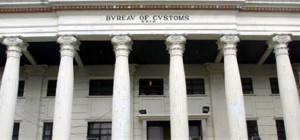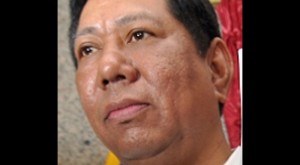
The Bureau of Customs (BOC) has been losing more than P5 billion a year due to the undervaluation of imported plastic manufacturing materials by a group led by “Ma’am T,” one of the big-time players in the Department of Finance-attached agency. FILE PHOTO
MANILA, Philippines—The Bureau of Customs (BOC) has been losing more than P5 billion a year due to the undervaluation of imported plastic manufacturing materials by a group led by “Ma’am T,” one of the big-time players in the Department of Finance-attached agency.
This was revealed to the Inquirer on Wednesday by a newly appointed BOC official who said that at the bureau “Ma’am T is also known as Ma’am Tina,” which is short for “a certain Tina Yu.”
“Many customs old-timers know who she is. Her influence, as well as her generosity, are common knowledge at the bureau,” the official noted.
The source confirmed this paper’s earlier report that under-the-table deals between corrupt examiners, appraisers and other frontline bureau personnel and players like Ma’am T were among the main causes of the BOC’s failure to meet its revenue collection targets.
“Because of her, the importation of plastic resin products, mainly by front business firms or consignees being used by her group, has become centralized. That is why importers of these products deal only with her,” said the source.
Influence imports
Like other players, Ma’am T can influence the volume of imports handled by the bureau, “either by withholding or bringing in more shipments to help the customs meet its monthly collection targets.”
That is, if the mutually agreed on “tara,” or dirty money, to facilitate the release of the imports is met between them and their contacts at the agency, the official said.
But a second source, a former customs official, said that like other players, Ma’am T had “on many occasions fallen prey to the so-called ‘alert me, release me’ scheme” practiced by some corrupt bureau personnel.
Under the scheme, players are allowed to bring in undervalued imports. Upon their filing, however, of import entries and payment of duties based on the undervalued declarations, alert orders are issued against the goods. An assessment of the shipment’s supposed real value is then made and the player makes additional payments to facilitate the lifting of the order and the release of the shipment.”
“The additional payments, of course, are shared among all those involved in the scheme, and not the bureau,” said the official.


